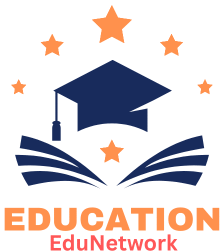As educational technology evolves, the role of the education consultant has become more vital in the workforce. Institutions of higher learning, K-12 schools, and corporate training programs all seek professional advice and strategies to improve curriculum development, student engagement, operational effectiveness, and the quality of student learning. This surge in demand has opened up additional career opportunities for those who are passionate about enhancing education.
Consultants in the Education Industry
Consultants in the education sector are experts in the field who provide advice and assistance to organizations in the field, including schools, districts, individual instructors, private students, and corporate training departments. Educational requirements are satisfied, new technology is introduced, effective curricular ideas are created, and more with the help of these experts.
They might work for consulting firms, educational departments and organizations, or even independently. Their contributions to educational institutions and learning organizations are crucial in encouraging creativity and boosting student performance.
The Main Responsibilities of an Educational Consultant
Consultants in educational positions have varying obligations that are determined by their area of expertise and the firm they are aiding. However, common responsibilities involve:
-
Making and recommending up-to-date, effective lesson plans is what curriculum development is all about.
-
Professional Development for Educators: Informing educators about cutting-edge methods and strategies via workshops, conferences, and one-on-one guidance.
-
Assisting organizations in carrying out educational policies and ensuring compliance with regional or national regulations is what we mean when we talk about policy implementation.
-
Improving student learning via the use of technology: assisting educational institutions in this endeavor.
-
Assessment and evaluation are ways to measure how well students are learning, how well teachers are doing their jobs, and how well schools are doing overall.
-
Special education guidance is the process of offering recommendations for inclusive practices and programs for students with special needs.
-
Guidance in preparing for and completing postsecondary education is the focus of college and career counseling.
Consultants in the Field of Schools
If you want to know what sorts of consulting opportunities are available in education, it’s helpful to look at the different types of education consultants:
-
Consultants for Curriculum
Experts in establishing and upgrading curriculum to satisfy the expectations of students and educational standards. -
Experts in Educational Technology Consulting
They have extensive experience helping schools adopt and implement technological innovations including online textbooks, learning management systems (LMS), and supplementary teaching tools. -
Special Education Consultants
Ensure compliance with the Individuals with Disabilities Education Act (IDEA) and other relevant legislation while prioritizing the development of accessible learning environments for students with disabilities. -
Experts in Higher Learning
Provide information on academic programs, professional development for professors, college admissions, and accreditation for institutions. -
Experts in Corporate Training and Development
Assist businesses in developing training programs that foster employee development and lifelong learning.
Skills Required of Education Consultants
To be successful as an education consultant, you need to have certain skills and qualities:
-
Superior Verbal and Written Communication Abilities: Explaining complex academic concepts in a clear and understandable way.
-
Evaluating the outcomes of instruction and proposing changes supported by data is analytical thinking.
-
Managing a project entails planning and executing tasks in accordance with predetermined time and resource limitations.
-
Cooperation with many parties: kids, parents, and school officials are all examples of stakeholders that need strong interpersonal skills.
-
Being able to shift gears quickly and stay current on educational trends are examples of adaptability.
-
To address difficulties, one must be able to think strategically and creatively.
A Guide to Becoming an Educational Consultant
If you are interested in working as an education consultant, these are the typical steps to follow:
-
Finish Your Degree Academic Credential
If you want to work in education, you need to have a degree in education or a related field like psychology, instructional design, or educational technology. -
Gain Relevant Work Experience in Education or Administration
Prior experience teaching or managing a school is essential. A background in teaching or school administration is common among advisers. -
Seek Out Postsecondary Education
Successful education consultants often have advanced degrees in education, curriculum design, educational leadership, or a closely related subject. -
Get Certified (if needed)
Particularly in the fields of special education and assessment, specific certifications or licenses may be required for consulting roles. -
Create a Network and Develop Your Portfolio
Make contacts with influential people in the education sector via conferences, networking events, or social media platforms like LinkedIn, and highlight your work from past initiatives. -
Establish Your Own Consulting Firm
You may start your own business and cater to clients’ unique needs as an education consultant, or you can join an established firm.
Consulting with an Educational Focus Has Many Benefits
Being a consultant in the field of education has several advantages:
-
Adaptability: Many consultants set their own schedules and decide which tasks to take on.
-
Possibilities Abound: You have the chance to work in a wide range of fields, locations, and levels of schooling.
-
Positive Impact: Consultants play a crucial role in improving educational systems and student outcomes.
-
Personal and Professional Growth: A person’s career and one’s own personal development may both benefit from a commitment to lifelong learning and collaborative efforts with other organizations.
-
Competitive Salary: Education consultants, based on their area of experience and specialization, have the potential to earn a substantial income.
Finding Work as an Education Consultant: Where to Look
There are a variety of resources available to educational consultants who are looking for work:
-
Connect with clients, build your network, and find remote or full-time jobs using LinkedIn, a powerful professional network.
-
Consultant positions are advertised on education-focused job boards including EdSurge, HigherEdJobs, and Education Week.
-
Freelancing Marketplaces: Sites like Upwork and Toptal provide consulting gigs to those who want to strike out on their own.
-
District and university websites often have postings for internal and external consultants.
-
Groups for Professionals: Opportunities for employment may arise as a consequence of membership in groups like NACADA or the Association for Supervision and Curriculum Development (ASCD).
Predictions for Educational Consultant Salaries
Several factors, such as a consultant’s area of expertise, geographic region, degree of education, and years of experience, contribute to their salary in the education industry. As a general rule:
-
Consultants at the starting level may earn $40,000 to $60,000 per year.
-
Expert consultants may earn seventy-five thousand to one hundred thousand dollars, or perhaps more.
-
Freelancers’ hourly rates might range from fifty dollars to two hundred dollars, depending on their stellar reputation and specialty.
Reasons Why Educational Advisors Are Necessary
Several developments are fueling the need for consultants in the field of education:
-
The Exploration of Educational Technology and Distance Learning
There is a growing need for expertise in online education and technological integration in the wake of the pandemic. -
Make Sure Inclusion and Equity Are Priorities
Schools are seeking assistance in developing and implementing inclusive policies and curricula in response to the growing importance of diversity, equity, and inclusion in the educational system. -
Personalized Paths to Academic Success
There is a critical shortage of qualified individuals who can evaluate and guide adaptive and customized learning systems. -
The Globalization of Education
There is a significant need in the online education industry and among foreign institutions for consultants versed in international education standards. -
Policy Changes
New educational policies and standards often need the assistance of experts in the fields of interpretation and implementation.
Guide to Search Engine Optimization for Instructor Promotion
When launching a business or entering the field as an education consultant, search engine optimization (SEO) is crucial to attracting clients:
-
Use phrases like “teacher training consultant,” “education consultant,” “curriculum advisor,” and similar terms strategically throughout your content and website.
-
Get a blog going and share what you know about educational technology, policy shifts in the field, or effective teaching strategies.
-
Include a list of your services and relevant keywords in your LinkedIn profile for maximum optimization.
-
Social proof is a great way to build credibility, so be sure to include customer testimonials.
-
Make it easy for businesses to grasp your offerings by providing clear service lists.
Conclusion
Being a consultant in the education industry is an important and fulfilling career choice for persons who are passionate about improving learning environments. With the right mix of knowledge, skills, and marketing, education consultants may have a lot of leeway to pursue opportunities that are both challenging and rewarding. This career path offers the chance to shape the future of education, one school at a time, for both seasoned teachers looking for a new challenge and education specialists looking for a change of scenery.
